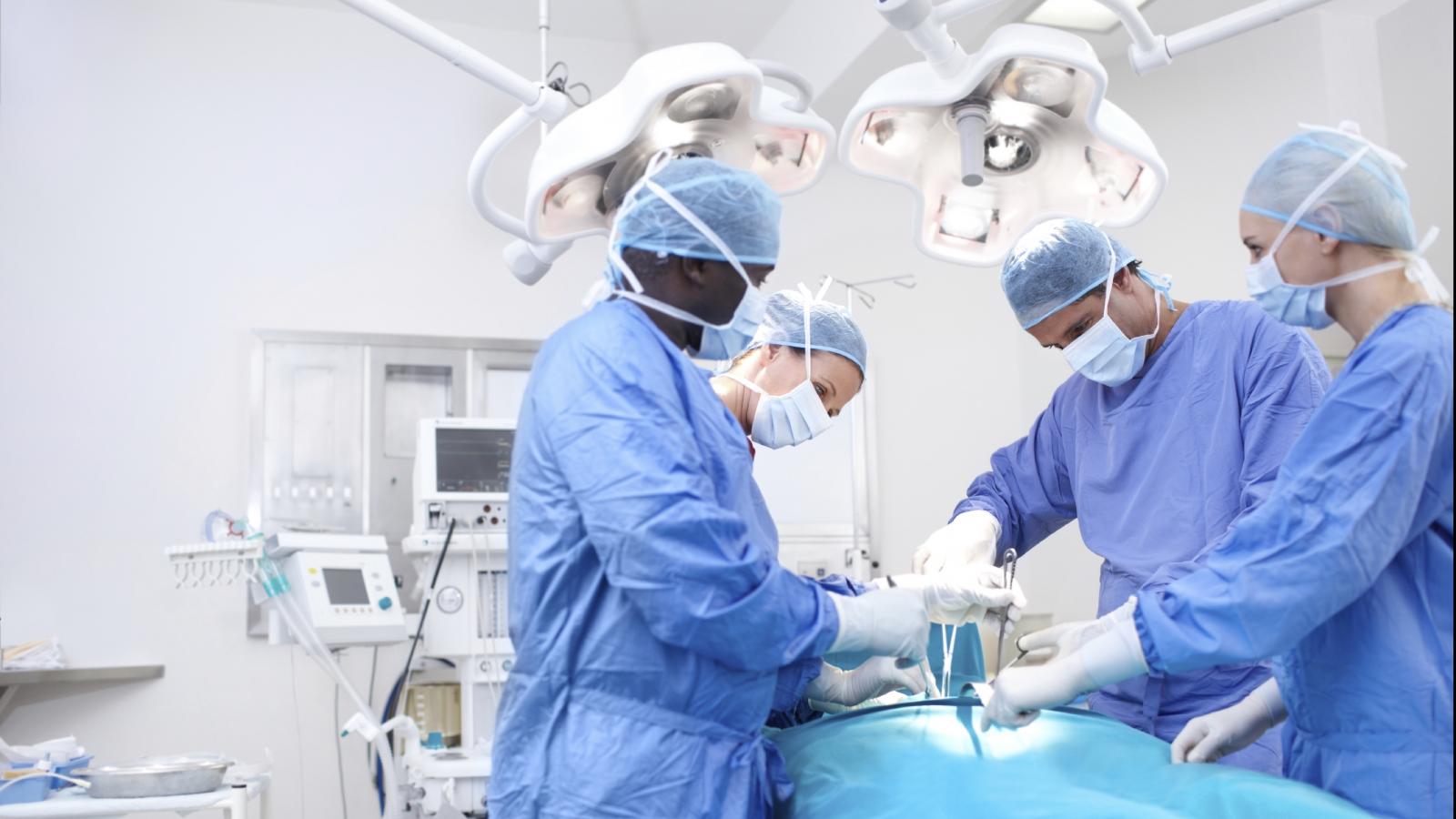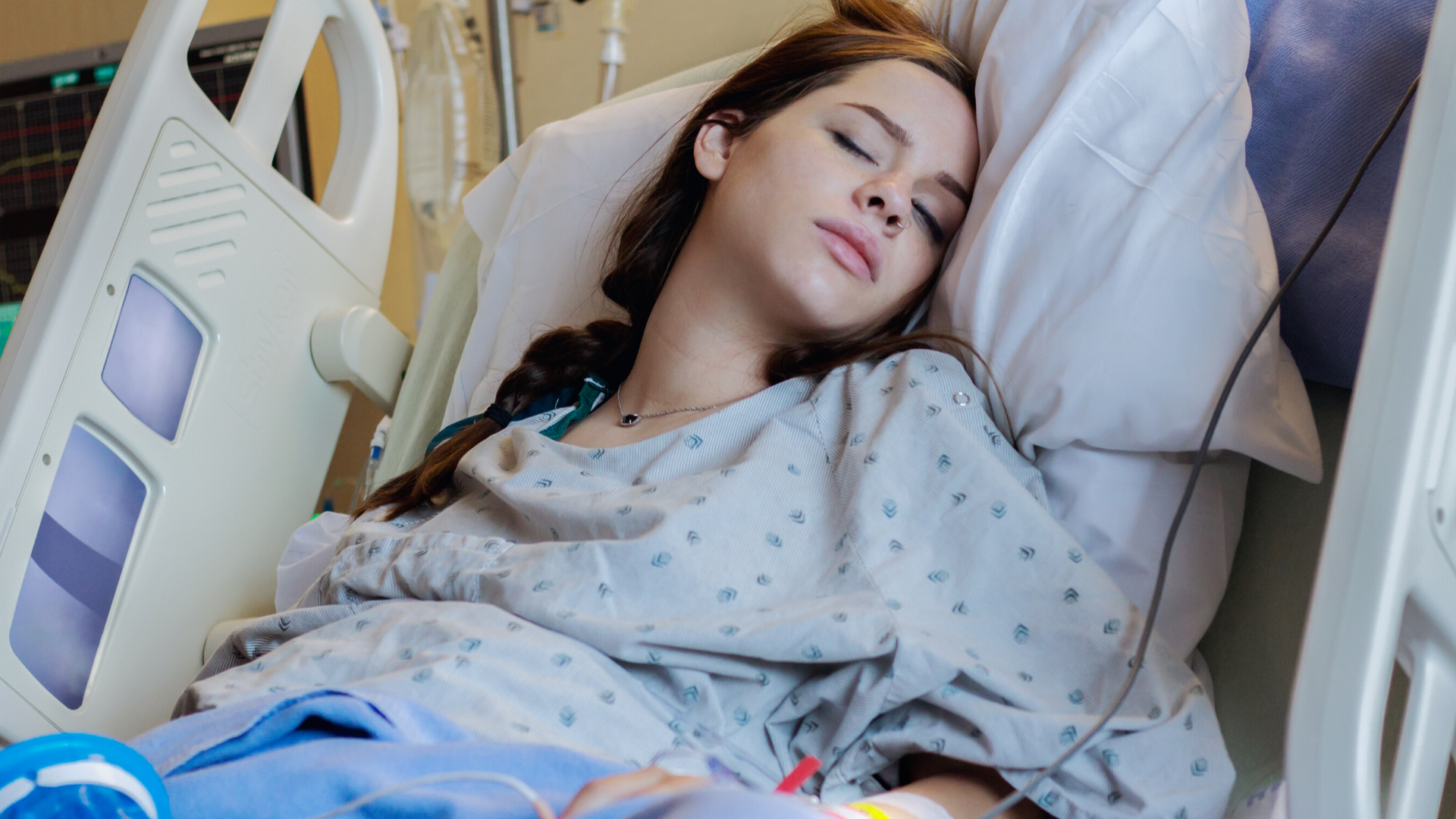Surgery for prostate cancer

On this page:
The aim of surgery is to remove your entire prostate gland and the cancer within it. This operation is called a radical prostatectomy. It involves removing your prostate gland and the seminal vesicles, which are glands near your prostate that produce some of the fluid in semen. Sometimes lymph nodes and nearby tissues may be removed as well. The surgeon who removes your prostate gland is called a urologist.
Who can have prostate surgery?
Surgery is suitable if the cancer is found only in your prostate gland and you are fit and healthy. Surgery to remove your prostate gland is a big operation. It has risks such as bleeding, blood clots and infection. Surgery may be more risky if you have health problems such as heart disease or if you are very overweight. In this case, your surgeon will advise you to have one of the other treatments for early prostate cancer.
What are the types of prostate surgery?
What are the types of surgery?
Surgery to remove your prostate gland can be done in a number of ways. Not all of the treatments are available in all hospitals in Ireland, so discuss your preference with your surgeon.
- Robot-assisted laparoscopic prostatectomy (robotic surgery): This operation is a type of keyhole surgery but with the use of a computer and robotic arms to help to remove your prostate.
- Open prostatectomy: Open surgery means removing your prostate through a cut in the wall of your abdomen between your belly button and pubic bone or through a cut between your scrotum and back passage.
- Laparoscopic prostatectomy: With keyhole surgery, small cuts are made in your abdomen so that special instruments can remove your prostate.
Lower risk of needing a blood transfusion or getting a wound infection
Spend less time in hospital
Heal more quickly than open surgery
Long-term side-effects of this type of operation are the same as for open surgery.
Nerve-sparing surgery
Sometimes having to remove all the cancer cells means that nerves attached to the prostate cannot will be removed. These nerves control erections. If the nerves are not preserved or are damaged during the operation it will cause problems with getting an erection in the future.
If the cancer has spread too close to the nerves, your surgeon may need to remove one or both bundles of nerves. In some cases, it is possible to spare nerves on one side of your prostate. This is called a nerve-sparing prostatectomy. It gives you a better chance of regaining erections than if you had both of the nerves removed, but not as good as if you had both bundles of nerves spared. Ask your surgeon if nerve-sparing surgery is possible for you or not. Very often surgeons can’t tell until the operation itself if they can do a nerve-sparing operation or not.
Before surgery
Tests: To make sure you are fit for surgery, you will need some tests. For example, blood tests, heart tracing (ECG), chest X-ray and a physical exam. An anaesthetist may also examine you to make sure you are fit for surgery. They will also discuss pain relief with you.
Risks: Prostate surgery has the same risks as any big operation. These include bleeding and the need for a blood transfusion, chest infection, blood clots and wound infection. Your doctor will discuss these risks and the side-effects of surgery before you sign a consent form.
Exercises: Before surgery, a physiotherapist or nurse might show you how to do simple exercises to strengthen the muscles that help control your urinary flow. These are known as pelvic floor exercises (see page xx). You may also be shown how to do deep breathing and leg exercises to prevent a chest infection or blood clot afterwards. You may be given some elastic stockings to wear and an injection of an anti-clotting drug to reduce the chance of blood clots forming in your legs.
Fasting: You cannot eat or drink anything for a few hours before surgery. The operation takes between 2 and 4 hours but you will also spend some time in the recovery room while recovering from the anaesthetic.
After prostate surgery
When you wake up, you may have drips and tubes attached to your body. For example:
■ A drip into your arm or neck to give you fluids until you can drink again
■ A flexible tube (catheter) in your penis to drain urine into a bag
■ A tube (drain) near your wound to drain away any fluid
If you have open surgery you may have a tube into your back, which gives you drugs to relieve any pain.
When you begin to drink again, the drip will be removed. All other tubes and drains will be taken out over the first couple of days, except for the urinary catheter. You will go home with this tube. Your catheter will be removed 1-3 weeks after surgery in hospital or by your GP. It only takes a few seconds. You will probably leak urine for a time after the catheter is removed. This is normal and usually improves with time. Read more about catheters and how to care for them.
You may have stiches or clips if you have open surgery. The stitches will dissolve in their own. The clips will need to be removed. If they’re not removed in the hospital, your practice nurse, public health nurse or GP might remove them when you go home. Contact your GP or the hospital as soon as possible if your wound becomes swollen, red or painful. This could be a sign of infection.
The average stay in hospital is 5–7 days but can be shorter or longer. You will need some time to recover at home afterwards as well.
Read more about what happens after surgery.
Was the surgery successful?
The prostate gland will be examined under a microscope in the laboratory after it has been removed. The doctor will check the grade of the cancer cells again. and check that the edges of the prostate are clear of cancer, called 'checking the margins'.
Negative margins: No cancer cells.
Positive margins: Cancer cells found at the edge of the prostate.
These tests are used to predict your response to the treatment along with PSA checks. Your PSA level should drop within weeks of surgery.
Side-effects of prostate surgery
- Urinary problems
- Erectile dysfunction (impotence)
- Infertility / ‘Dry’ orgasm
- Orgasm changes
- Shorter penis
Talking to your doctor and nurse, or someone else who has had surgery for prostate cancer, may help you to understand the impact of these side-effects on your daily life, but remember all patients recover in different ways. Call our Support Line on 1800 200 700 if you would like to be put in contact with a trained volunteer who has had treatment for prostate cancer.
Urinary problems
- Problems controlling the flow of your urine.
Almost everyone will have trouble with leaking urine in the first weeks and often months after any of the types of surgeries mentioned. The risk of urinary leakage is the same for open, keyhole and robotic surgery. Talk to your surgeon or nurse about the risk of urinary incontinence before you consent to surgery.
You will probably need to wear an incontinence pad for a time to collect the leaked urine. As time goes on, you are likely to regain control of your urine flow and you won't need to wear pads any more. Or perhaps you will only need one pad a day or just when you exercise. A small number of patients do not regain complete control over their urine flow and need to continue wearing pads. Tell your surgeon if this happens. Read more about urinary problems.
Erectile dysfunction
- Finding it hard to get or keep an erection
Erectile dysfunction can happen because surgery can damage the nerves and blood vessels that control erections.
If you had problems with erectile dysfunction before surgery, you’re more likely to have these problems after surgery too.
Up to 7 in 10 men have erectile dysfunction after a radical prostatectomy.
It can take at least a year after surgery to find out if the impotence will get better or not. You may need medication or other treatments to help you get an erection. Read more about erection problems and treatments for them.
If you have problems with erections, talk to your surgeon when you go for check-ups, or talk to your GP or nurse. You can speak to cancer nurse in confidence by calling our Support Line on 1800 200 700 or by visiting a Daffodil Centre. You can also email the nurses at supportline@irishcancer.ie
There is some evidence that taking tablets or using vacuum therapy for erectile dysfunction soon after surgery may improve your chance of having erections again, depending on what is causing the problem. You may not be interested in sex at first. But taking the tablets or using a vacuum pump at an early stage may improve your chances of getting erections if and when you are ready to have sex again.
Infertility / ‘Dry’ orgasm
- No semen when you ejaculate
Dry orgasm means there is no semen when you ejaculate, so you will no longer be fertile. Talk to your doctor before your treatment if you’re worried about this. It’s not safe to assume you are sterile, so you will need to use contraception to avoid pregnancy. Read more about fertility and cancer treatment.
Orgasm changes
- Longer-lasting orgasms
- Pain after orgasm in the early days
- Orgasms that feel ‘different’ than before surgery
Shortening of your penis
Up to a year after surgery you may notice your penis has shortened. Some treatments for erectile dysfunction that encourage blood flow into your penis, such as tablets or a vacuum pump, may help to prevent it.
Advantages and disadvantages of prostate surgery
Advantages
- Surgery will completely remove the cancer if it is only in the prostate gland.
- The prostate can be removed and be fully analysed and staged in the laboratory.
- The success of the treatment can be easily assessed by PSA testing.
- If the PSA were to rise after surgery you would still be able to get other treatments like radiotherapy or hormone treatment.
Disadvantages
It involves a general anaesthetic and the usual risks you would expect with surgery, like the risk of bleeding, infection and blood clots.
- You will have to stay in hospital for a few days.
- You may get side-effects afterwards like problems with erections and urinary incontinence.
- You will not be able to have children naturally after the surgery, as the prostate, which normally makes some of the fluid needed for semen to be made, has been removed.
- Recovery takes around 6 weeks.
For more information
Phone
1800 200 700



